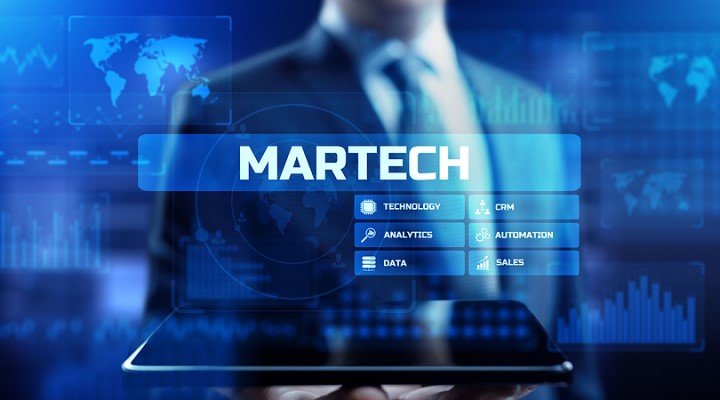New research has revealed marketing budgets are at their lowest in nearly a decade, dropping from 11 per cent in 2020 to just 6.4 per cent of companies’ revenue this year.
For years, small business marketing teams have struggled to adjust their transforming roles amid a period of rapid digital transformation. However, the impetus of the global pandemic and its impact on both business and the economy has supercharged martech automation.
While marketing budgets may be declining, martech automation continues to dominate and is being largely accelerated by SMEs.
Here, we delve into the rise of martech automation and discuss why SMEs that invest in martech solutions will reap the rewards.
Data-backed decisions matter more than ever before
More than three in four marketing leaders base decisions on data, and with the average Australian spending 5.5 hours per day on their phone, it’s clear there’s more data to capture than ever before.
Martech tools empower small businesses by processing and synthesising data. Many SME owners are sole traders and often wear many operational hats, but automation helps to free up time to spend on creative and inherently human tasks.
Over the past decade, SMEs looking to get ahead have leveraged artificial intelligence (AI) in business and marketing platforms to widen the gap in today’s highly competitive environment. AI is the perfect application for small business marketing because of its ability to process large volumes of data at a rapid speed and make analytical decisions faster than humans.
Further to this, AI has the power to support targeted digital marketing campaigns by analysing data about a core demographic, including their interests, preferences and keyword searches. This can then be used to launch digital campaigns and help build critical brand awareness across diverse markets.
Automate to drive business growth
It’s estimated that marketing teams will lose AU$302 billion in budget by the end of the year. Yet, despite this reduction in marketing dollars, SMEs must remain seen and heard by customers otherwise, they risk losing out.
One of the best ways to maintain the same touchpoints with fewer resources is to automate. Investing in martech that works will allow small businesses to remain focused on the activities that are both fulfilling and generating revenue.
From driving efficiencies with fewer resources to targeting new digital audiences and getting your product or service into the right hands, technology can be leveraged to simplify processes and drive business growth.
SMEs should take stock of all their processes and consider what can be automated, such as lead generation and nurturing, email marketing, social media brand awareness, content marketing and invoicing.
Thanks to the democratisation of AI, it’s now being used widely to level the playing field by driving efficiencies, reducing manual work and automating processes. The results speak for themselves, with 52 per cent of marketers experiencing an increase in sales, and another 51 per cent noticing an increase in customer retention since introducing AI capabilities into the ecosystem.
As digitisation continues to accelerate, small businesses must establish robust martech structures to support and sustain business growth. While marketing teams continue to venture into uncharted waters, facing tightened marketing budgets, increased business competition and higher targets, martech and AI solutions are becoming a key resource for driving business growth, especially for SMEs.
By turning contextual real-time data from social and digital advertising channels into easy to understand insights and recommendations, AI can take the guesswork out of marketing to help businesses that don’t have large or experienced marketing teams.
















